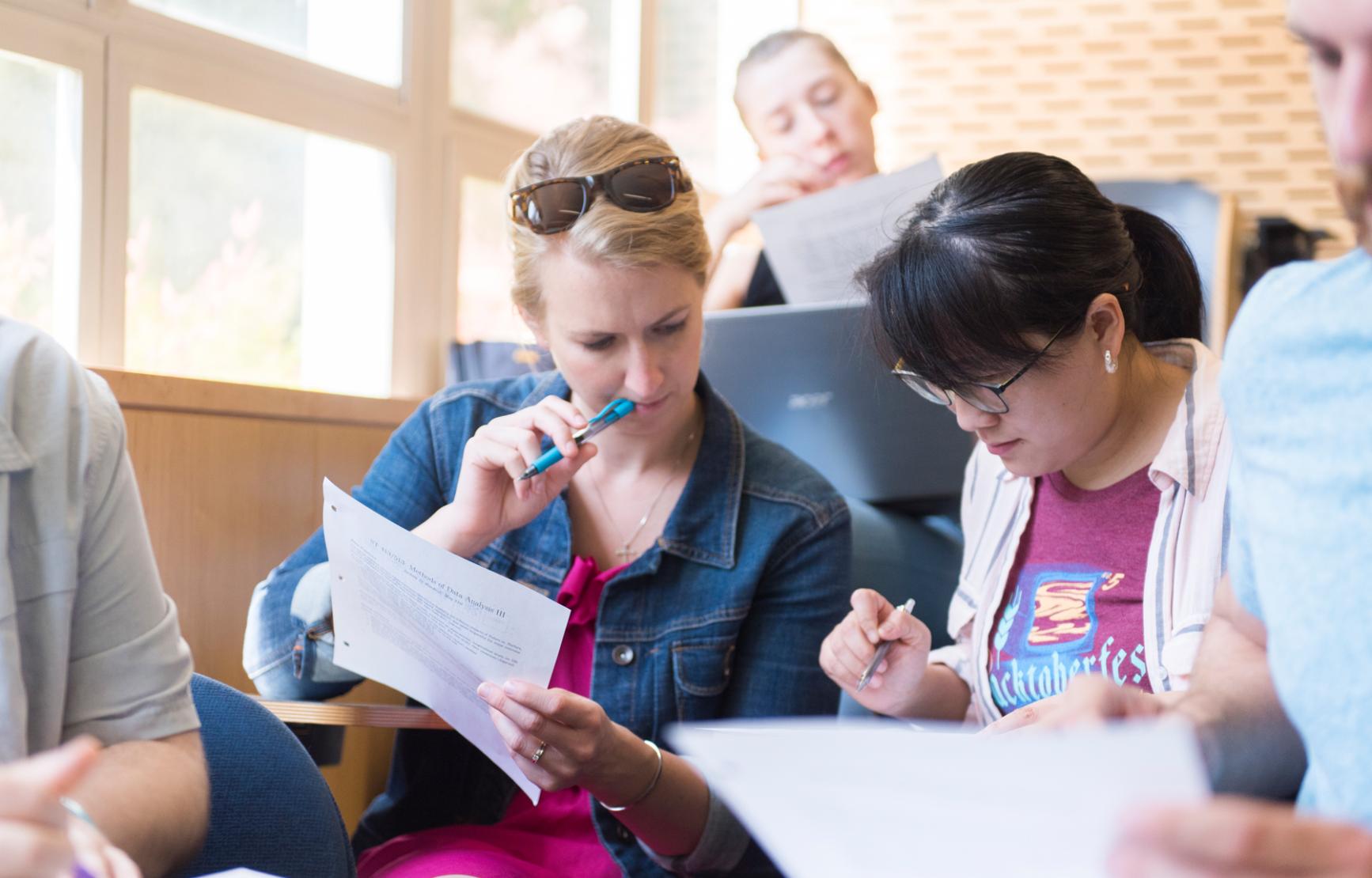The Department of Statistics offers graduate work leading to M.S. and Ph.D. degrees in Statistics. Students can concentrate on theory or applications, and programs can be tailored to emphasize areas of interest such as ecology, engineering, forestry and computational biology.
Statistics M.S. and Ph.D.
Resources for prospective students

Statistics accepts applicants for fall term
Applications for fall term open in September. Please apply by January 15 to be considered for funding. All other applicants will be considered if their application is complete by June 1. All materials must be submitted and received to be considered.
Check out our guidebook
The statistics department prepares guidebooks for our prospective and current students to help acquaint you with the organization, policies and procedures of the statistics program at Oregon State University.
Gain career-building experience
All students obtain experience as statistical consultants for problems in a variety of areas, including agriculture, biology, forestry, exercise physiology, and engineering. Students interested in environmental sciences have the opportunity to obtain experience both in and outside the classroom with statistical methods for environmental data.
Research facility access for graduate students
The University Computing Services Center and the University’s Valley Library (1999 library of the year) are located near the Department of Statistics. In addition to these University facilities and student computing facilities, the department maintains its own library and its own computer system. Each graduate student is given an office (usually shared) with one or more personal computers. The departmental library contains approximately 700 volumes of research and reference works, with subscriptions to most of the major journals in statistics and operations research.
Statistics Ph.D. learning objectives/outcomes
- Graduates will be able to communicate the major tenets of statistics, explain their work orally and identify areas of future research areas in statistics.
- Graduates will have passed the comprehensive written exams at a superior level based on a summary of required coursework.
- Graduates will have designed, carried out and presented an original work of research at the leading edge of the statistics discipline.
- Graduates will be able to identify and articulate strategies for dealing with ethical issues that may arise.
Statistics M.S. learning objectives/outcomes
- Graduates will be able to understand basic theoretical and applied principles of statistics with adequate preparation to pursue a PhD or enter the job force as an applied statistician.
- Graduates will have passed the comprehensive written exams based on a summary of required coursework.
- Graduates will have presented a summary of a research project [non-thesis coursework].
- Graduates will be able to identify areas where ethical issues may arise in statistics.



